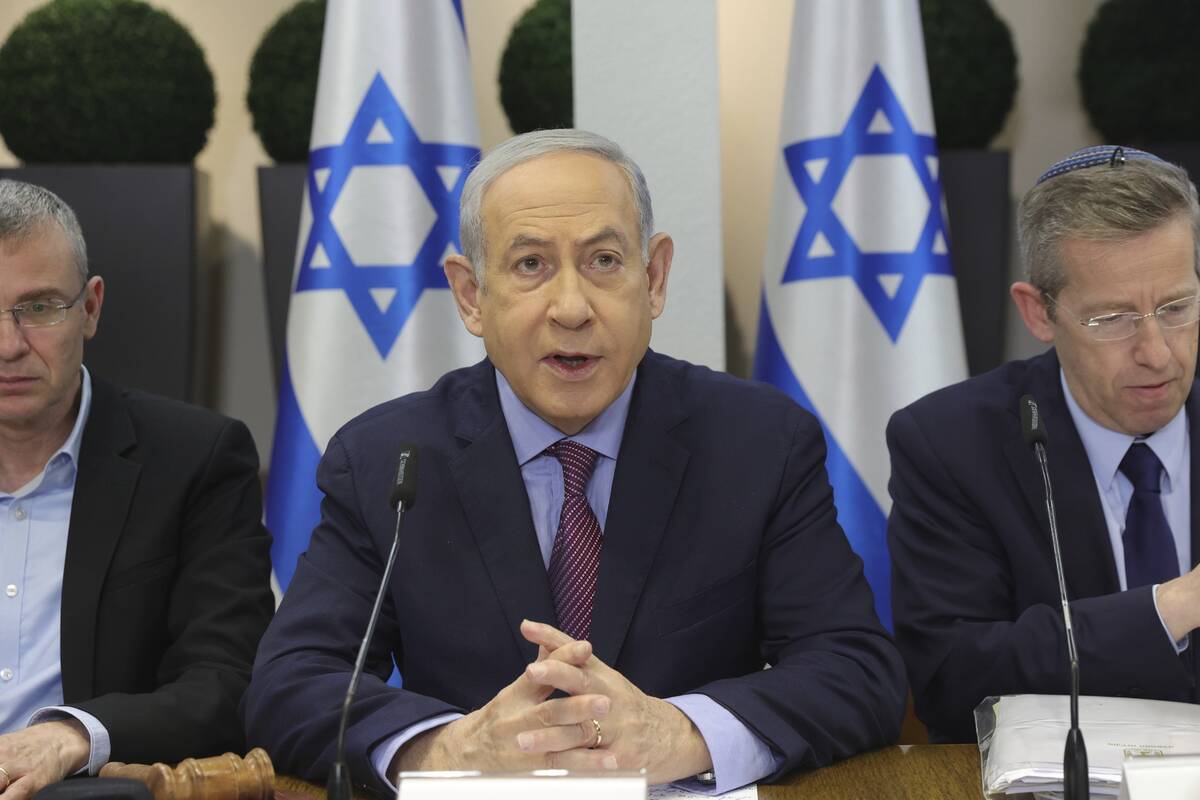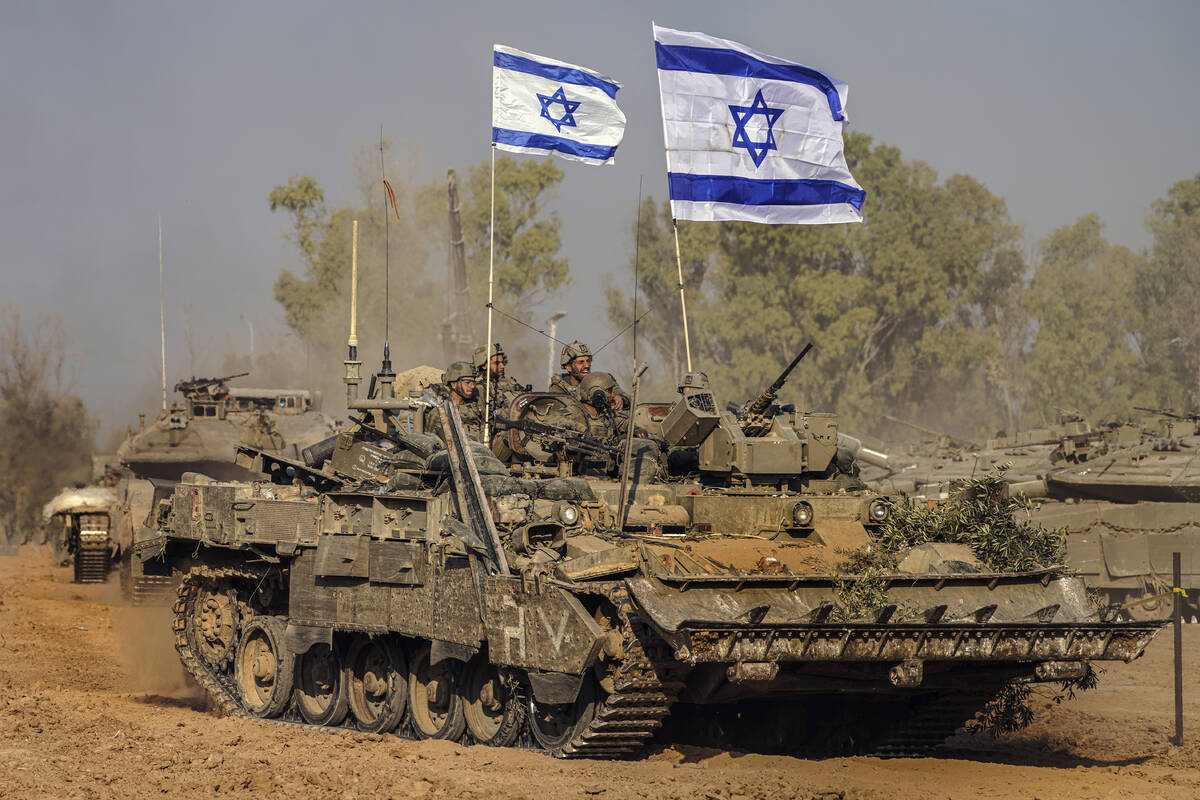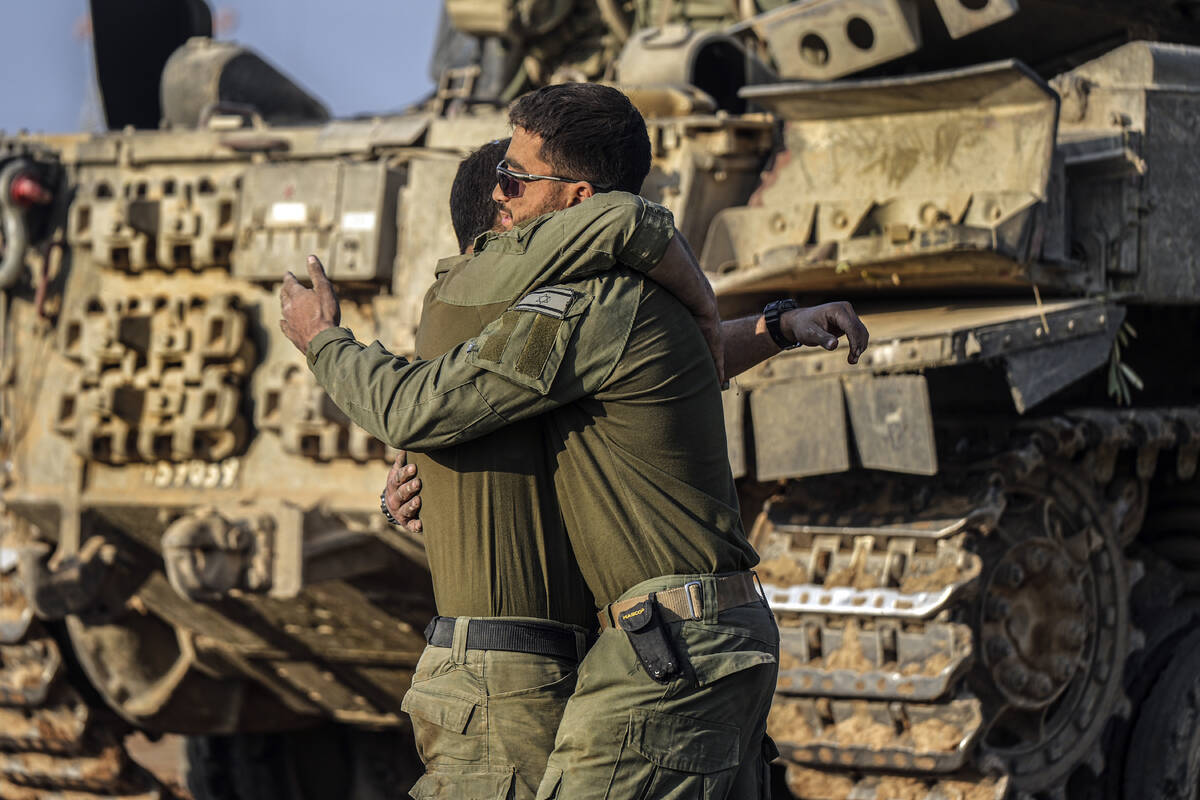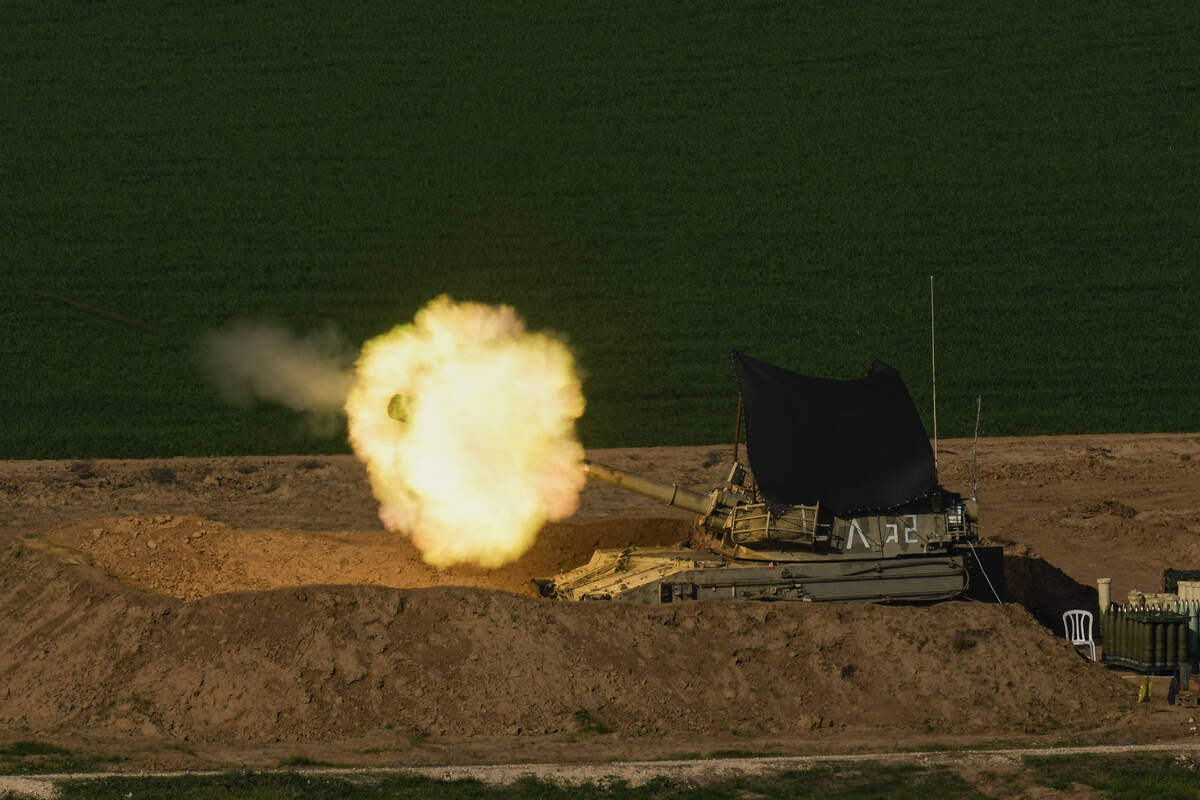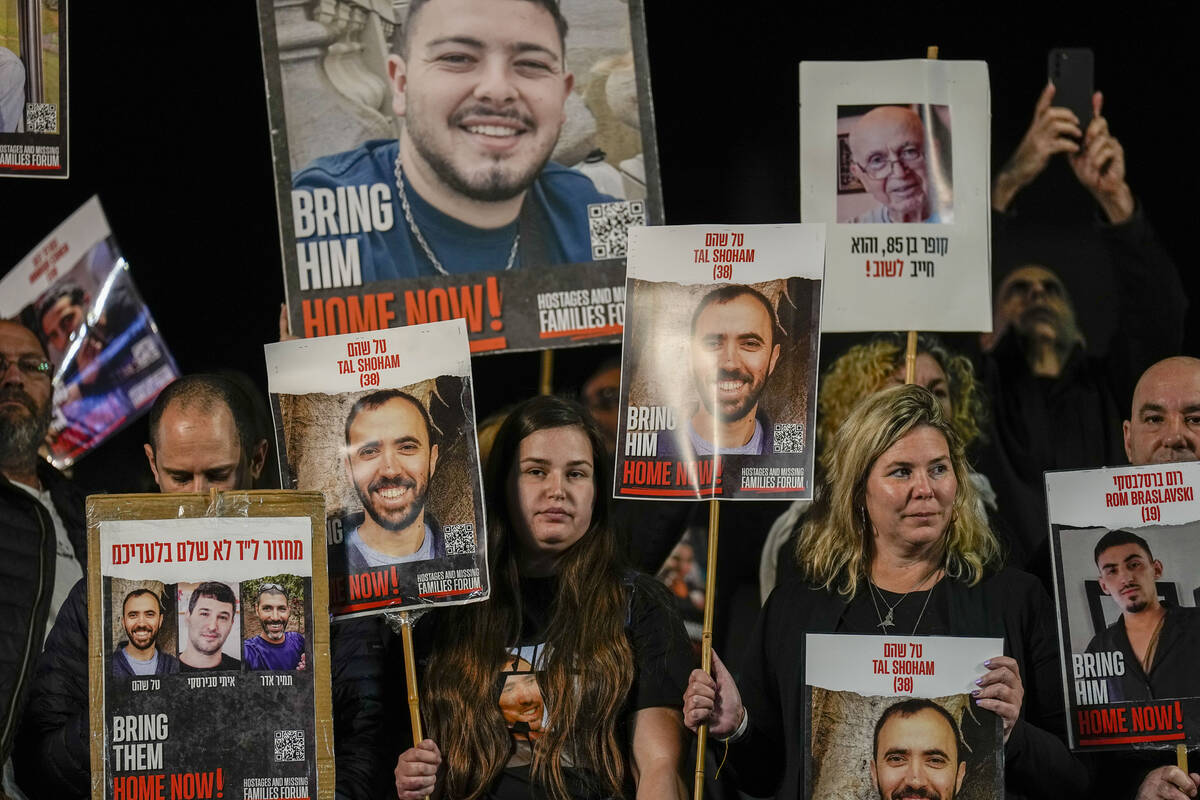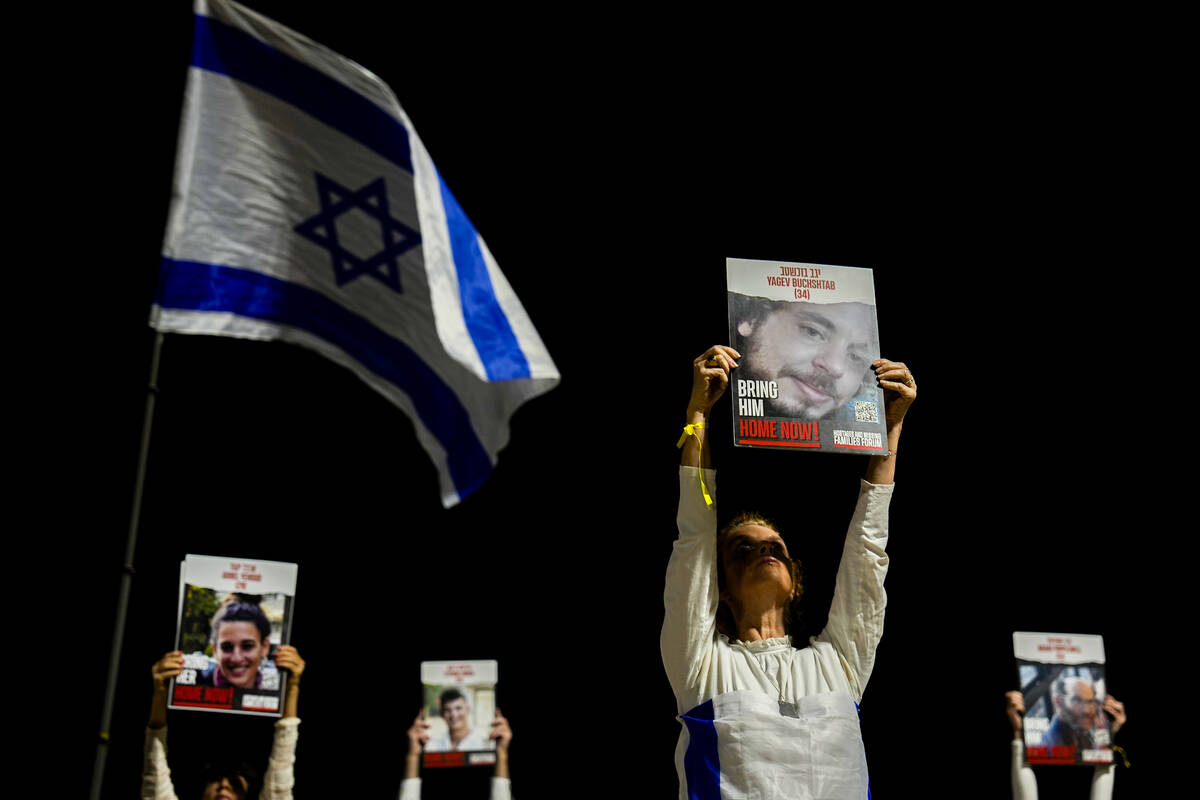Israeli strikes in central Gaza as Netanyahu says war will continue for months
DEIR AL-BALAH, Gaza Strip — Israeli strikes targeted central Gaza as fighting raged Sunday across the enclave a day after Israel’s prime minister said the war will continue for “many more months.”
The military said Israeli forces were operating in Gaza’s second-largest city, Khan Younis, and residents reported strikes in the central region, the latest focus of the nearly three-month air and ground war that has raised fears of a regional conflagration.
Israel expanded its offensive to central Gaza this week, targeting a belt of dense, built-up communities that house refugees from the 1948 war surrounding Israel’s creation and their descendants.
The Israeli military said it was battling terrorists in Khan Younis, where Israel believes Hamas leaders are hiding. It also said its forces operating in the urban Shati refugee camp, in northern Gaza, found a bomb in a kindergarten and defused it. Hamas continued to launch rockets toward southern Israel.
Israel has faced stiff resistance from Hamas terrorists since it began its ground offensive in late October, and the military says 172 soldiers have been killed during that time.
Israel says it wants to destroy Hamas’ governing and military capabilities in Gaza, from where it launched its Oct. 7 terrorist attack on southern Israel. The terrorists killed some 1,200 people and took about 240 others hostage that day after breaking through Israel’s extensive border defenses, shattering its sense of security.
Israel’s air and ground offensive has killed more than 21,800 Palestinians, according to the Hamas-run Health Ministry in Gaza, which does not distinguish between civilian and combatant deaths.
Minister urges mass migration
The fighting has pushed much of the population south, where people have flooded shelters and tent camps near the border with Egypt.
The scale of the destruction and the exodus to the south has raised fears among Palestinians and Arab countries that Israel plans to drive Gaza’s population out and prevent it from returning.
On Sunday, Israel’s finance minister said it should “encourage migration” from Gaza and re-establish Jewish settlements in the territory, from which it withdrew settlers and soldiers in 2005.
“If in Gaza there were only 100,000 or 200,000 Arabs and not 2 million, the entire discussion about ‘the day after’ would be completely different,” Finance Minister Bezalel Smotrich told Army Radio.
Smotrich has been largely sidelined by a War Cabinet that does not include him. But his comments risked worsening tensions with neighboring Egypt, which is deeply concerned about a possible mass influx of Palestinian refugees, as well as other friendly Arab countries.
Divisions over postwar plans
Israel is also at odds with the United States, which has provided military aid for the offensive, over Gaza’s future.
Israeli Prime Minister Benjamin Netanyahu has said Israel must maintain open-ended security control over the Gaza Strip. At a news conference Saturday, he said the war would continue for “many more months” and that Israel would assume control of the Gaza side of the border with Egypt.
Israel says Hamas has smuggled weapons from Egypt, but Egypt is likely to oppose any Israeli military presence there.
Netanyahu has also said he won’t allow the internationally-backed Palestinian Authority, which administers some parts of the occupied West Bank, to expand its limited rule to Gaza, from where Hamas drove its forces out in 2007.
The U.S. wants a unified Palestinian government to run both Gaza and parts of the Israeli-occupied West Bank as a precursor to eventual statehood. The last Israeli-Palestinian peace talks broke down over a decade ago, and Israeli governments since then have been staunchly opposed to Palestinian statehood.
Israelis protest Netanyahu
Israelis, still largely united behind the war’s goals, are showing signs they are losing patience.
On Saturday night, thousands took part in one of the largest demonstrations against Netanyahu since the war began. The country is still sharply divided over the long-serving leader and a judicial overhaul plan he set in motion before the war.
A separate protest Saturday called for the release of the estimated 129 remaining hostages held by Hamas terrorists. Families of hostages and their supporters have demanded that the government prioritize hostage releases over other war objectives, and have staged large protests every weekend.
Egypt, one of the mediators between Israel and Hamas, has proposed a multistage plan that would kick off with a swap of hostages for prisoners, accompanied by a temporary cease-fire. A similar deal in November saw Hamas free over 100 hostages and Israel release 240 Palestinian prisoners.
But the sides still appear far from striking a new deal. Both Hamas and the smaller Islamic Jihad terrorist group say no more hostages will be freed until Israel ends the offensive and withdraws from Gaza.
———
Mroue reported from Beirut and Goldenberg from Tel Aviv, Israel. Associated Press writer Melanie Lidman in Jerusalem contributed to this report.



